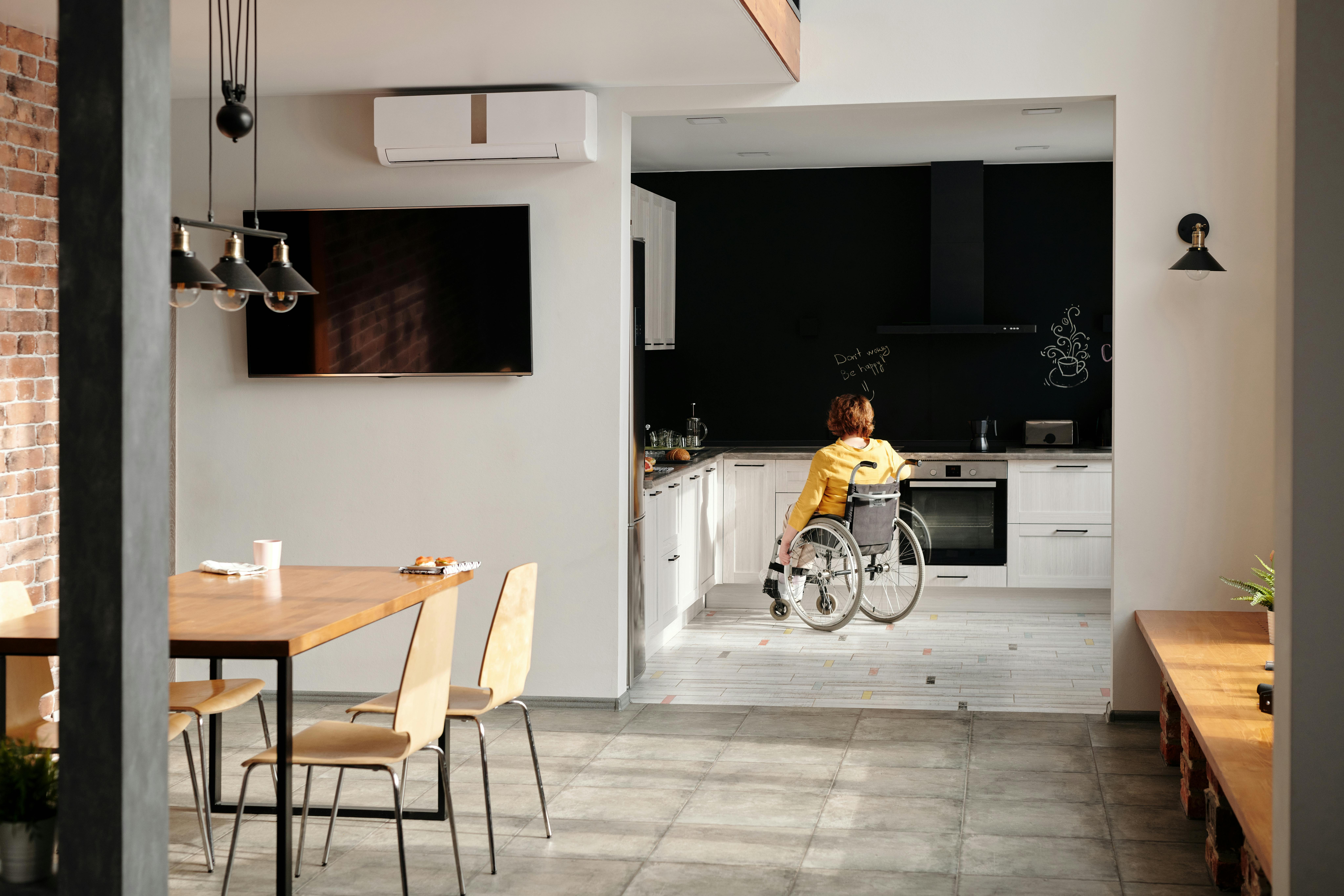Supporting a loved one with dementia during the transition from hospital care to temporary housing can be emotional and challenging. Medium Term Accommodation (MTA) offers a safe, supportive space to bridge the gap between hospital care and permanent living, with tailored care to promote recovery and independence. This guide explains how MTA fits within the NDIS framework and helps make the process smoother for your loved one. You’re not alone—let’s ensure they get the care they deserve.
What is Medium Term Accommodation?
Medium Term Accommodation (MTA) is a temporary housing solution funded under the NDIS, designed to provide safety and stability during transitional periods. Its goal is to support participants who need short-term housing while awaiting their permanent accommodation, such as Supported Independent Living (SIL) or Specialist Disability Accommodation (SDA).
MTA helps individuals navigate life changes, particularly those recovering from medical treatment, undergoing rehabilitation, or transitioning out of hospital or a justice setting. It offers a secure and structured environment to promote recovery, independence, and overall well-being during challenging times.
NDIS Funding for MTA
MTA is funded under the NDIS Core Budget and is available to participants who meet specific eligibility criteria, including:
- A long-term housing solution is in place but not yet ready, often due to pending disability support, home modifications, or other external factors.
- The participant is unable to remain in their current housing during this interim period.
For individuals being discharged from a hospital or a justice setting, eligibility may extend even if a long-term arrangement hasn’t been confirmed. Transitioning to permanent housing can be complex, but with the right resources and support, no one has to navigate it alone.
The Role of MTA in Recovery and Transition
Medium Term Accommodation (MTA) is like a bridge that helps NDIS participants move from the hospital to their long-term homes. It’s a crucial step in making sure the transition is smooth and supportive. Here’s how MTA can make a big difference:
A Safe and Comfortable Place to Heal
Imagine having a place that feels like home, where you can rest and recover without the hustle and bustle of a hospital. MTA provides secure, accessible housing designed to meet your physical and cognitive needs. It’s a space where you can feel safe and supported as you heal.
Personalised Care Just for You
MTA isn’t just about a place to stay; it’s about getting the right help. Providers offer personalised support services, like:
- Help with daily tasks, like bathing or cooking.
- Ongoing medical care and therapy to keep you on track with your recovery.
- Activities and routines that help you regain confidence and independence.
- This tailored care ensures you can focus on getting better while having the support you need.
Learning to Stand on Your Own Again
One of the most important things about MTA is that it helps you relearn how to do things on your own. Whether it’s managing daily tasks, moving around, or building skills for independent living, MTA providers work with you to create a recovery plan that fits your goals. It’s like having a coach to help you get back on your feet.
Keeping the Recovery Going
When you leave the hospital, it’s important to keep up with the progress you’ve made. MTA ensures that you continue with therapies, rehabilitation, and social activities that match what you were doing in the hospital. This continuity helps prevent setbacks and keeps you moving forward.
Easing the Load for Your Loved Ones
For your family and caregivers, MTA is a huge relief. Knowing that trained professionals are there to help with your recovery means they can focus on being your family, not just your caregivers. It gives them peace of mind, knowing you’re in good hands while they take a much-needed break.
MTA is a stepping stone to a better, more independent life. It’s about giving you the time, space, and support to heal, grow, and prepare for your next chapter.
Steps for Transitioning from Hospital to MTA
Moving from the hospital to Medium Term Accommodation (MTA) can feel like a big step, but with the right support, it can be a smooth journey. Here’s how you can make the process easier:
Step 1: Team Up with Your Support Coordinators
Think of your support coordinators as your personal guides. They’re there to help you and your family find the best MTA options. They’ll:
- Talk to different providers to find the right fit for you.
- Understand what you need to make sure the place is suitable.
- Walk you through the steps to see if you qualify and help with the paperwork.
Step 2: Start Planning Early
Getting ready for the move early is like packing for a trip. You want to make sure you have everything you need:
- Medical clearances to show you’re ready to leave the hospital.
- A care plan that outlines what support you’ll need.
- Evidence to show you meet the eligibility criteria for MTA.
By planning ahead, you can avoid delays and find a place that feels like home.
Step 3: Make the Handover Seamless
Imagine passing the baton in a relay race. The hospital team and the MTA provider need to work together to make sure you don’t miss a beat:
- They’ll share your medical records, so everyone knows your health history.
- Therapy plans will be passed on, so your recovery continues without interruption.
- Your individual needs will be communicated, ensuring the MTA provider knows how to best support you.
A well-coordinated handover means you can focus on getting better, not on worrying about the details. Remember, transitioning to MTA is about finding a safe, supportive place to continue your recovery. With the right planning and support, you can move forward with confidence.
Find the Right Medium Term Accommodation Today
Moving from the hospital to Medium Term Accommodation (MTA) can feel overwhelming, but you don’t have to do it alone. Our caring team at Reaching Abilities is here to help you find the perfect MTA solution tailored to your needs. We’re all about empowering you, innovating to improve your life, and building inclusive communities. We’ll work with you to achieve your goals and help you live more independently. Let’s make this transition smooth and supportive together — contact us today.

Ozer Tanlasi – Founder and Director of Reaching Abilities
Ozer Tanlasi is the Founder and Director of Reaching Abilities, an organisation dedicated to providing compassionate and empowering support to individuals with disabilities. With a background in allied health and a deep commitment to inclusive care, Ozer established Reaching Abilities to create a welcoming space where individuals can thrive, gain independence, and achieve their personal goals. Her approach is centred around understanding each individual’s unique needs and strengths, ensuring they receive tailored services that make a positive impact on their lives. Under Ozer’s leadership, Reaching Abilities has become known for its compassionate, client-focused approach, supporting individuals and families in building meaningful connections and reaching new potentials.






